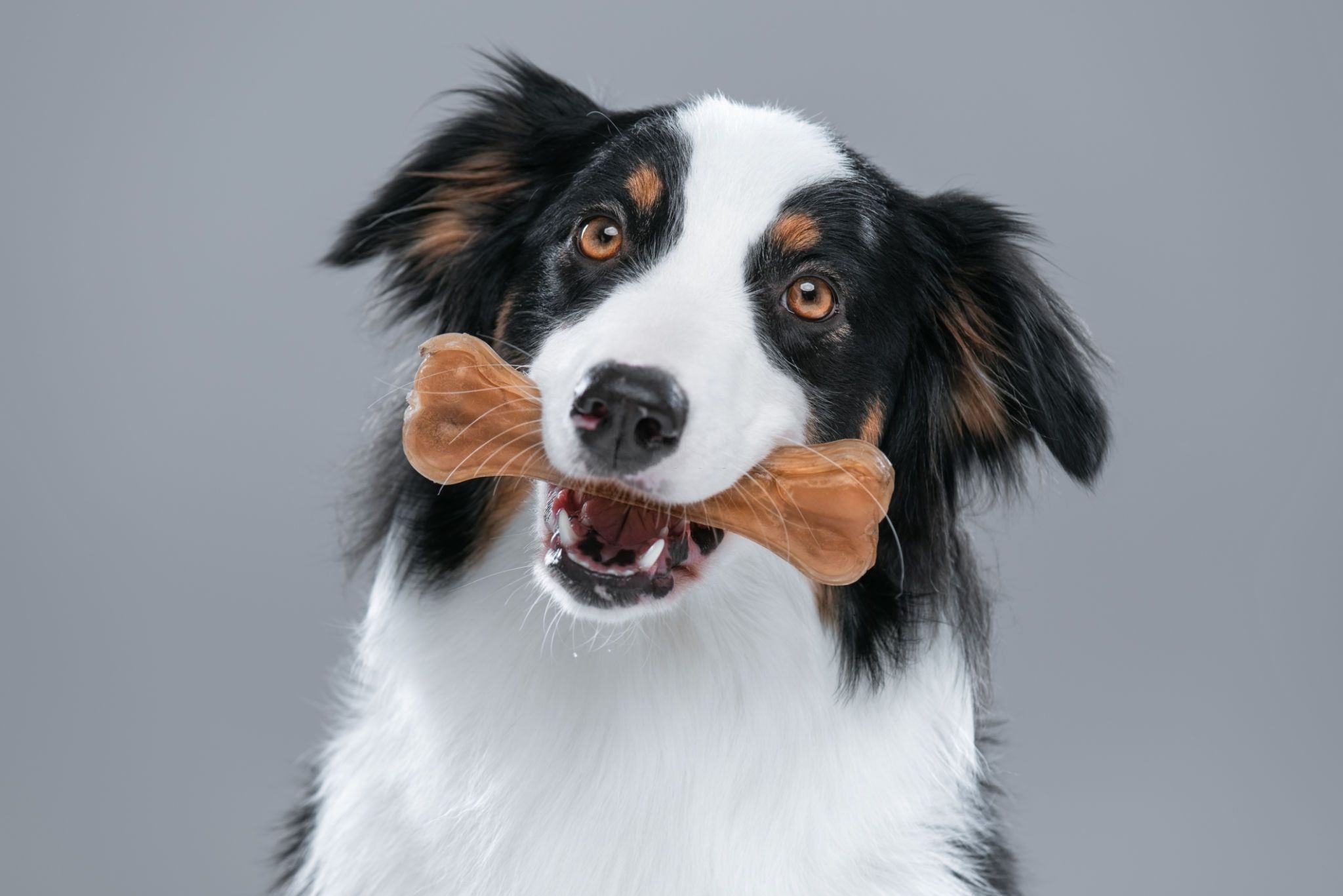When you personal an Australian Shepherd, lovingly known as the Aussie, you then in all probability already know that they’re full of life, energetic, and really clever canine, making them nice pets. With their agility and smarts, your Aussie has an superior persona and decision-making abilities, together with the loyalty and love for the household!
Whereas they make nice pets, there are vulnerable to allergic reactions, which might set off pores and skin points, respiratory issues, amongst different situations. That’s why it’s greatest to keep away from any triggers and allergens to maintain them completely happy and wholesome, could it’s within the air or the meals they eat.
However what are the Australian Shepherd meals allergic reactions to stay away from their eating regimen? Learn on to seek out out!
Table of Contents
The Australian Shepherd Meals Allergic reactions
Allergic reactions are an immune system dysfunction that happens when your physique has a extreme or inappropriate response to sure triggers, which embrace meals. Meals allergic reactions can set off pores and skin allergic reactions and different situations which are very uncomfortable to Australian Shepherds. Allergic reactions can start after they attain 1-2 years outdated if they’re brought on by allergens within the air, however it may possibly additionally start earlier in the event that they undergo from a meals allergy.
Listed below are the most typical indicators of meals allergic reactions:
- Itching and itchy paws
- Sneezing
- Sizzling spots
- Scaly and/or oily pores and skin or pores and skin rashes
- Pigmented pores and skin and/or leathery pores and skin texture
- Purple eyes or eye discharge
- Ear infections
- Air loss
- Bacterial infections on the pores and skin or ears
- Power diarrhea
- Restlessness
- Gastrointestinal troubles
- Lack of urge for food
- Behavioral points resembling regularly scratching on owner or furniture, shaking or scratching ears, biting their paws, tail, or rear finish, in addition to lowered curiosity or withdrawal from enjoyable actions
In case your canine reveals indicators of a meals allergy, you’ll have to take them to the veterinarian for remedy. That is particularly if they’re vomiting, straining to go stool, or have belly ache and/or diarrhea.
In case your canine experiences an allergic response to what he eats, there are methods to treatment the signs, together with antihistamines or different drugs.
What Are Aussies Allergic To?
Clearly, if meals is the offender of the allergy, then it is advisable to maintain that sure meals away out of your Aussie. They might be allergic to sure pet food containing particular components or ‘dusty’ dry meals, or home made meals you whip up in your canine. There are numerous meals an Aussie may be allergic to, relying on their genetics and particular person physique composition.
Whereas no canine or Aussie is similar, listed here are the highest pet food allergens:
- Beef
- Dairy merchandise
- Rooster
- Eggs
- Wheat
Whereas greens could appear to be the very best guess, take word that they comprise proteins as effectively, so that they aren’t secure instantly.
When you suspect meals allergic reactions in your Aussie, then it’s best to conduct an elimination eating regimen or meals trial. You are able to do this by feeding her new and pure meals for no less than 8 weeks, both cooked or commercially-produced.
You’ll be able to decide to feed them pet food with single sources of carbohydrate, animal protein, and vegetable protein. When you’re making your individual pet food, go for fish and potatoes, or rabbit and peas. Do not feed them meals that has different pure flavors, as they might comprise unidentified proteins.
As you carry out this meals trial, don’t feed them any desk meals, flavored drugs, or dietary supplements. Then, slowly introduce your Aussie’s authentic meals, or one meals ingredient at a time, monitoring for any indicators of allergic reactions. If you reintroduce the meals you observed as an allergen, this may help you establish if there are allergic reactions.
Moreover this, there are additionally different methods to find out allergic reactions, resembling blood or patch checks carried out by a veterinarian. Speak together with your canine’s veterinarian for any suggestions concerning their meal plans, as they may help you create an efficient meal plan that focuses on a contemporary meals eating regimen to maintain your Aussie wholesome whereas stopping any allergic response.

What Meals Truly Helps Aussies
Moreover meals that triggers allergic reactions, additionally they have dietary supplements and meals to eat to assist cut back and eradicate allergic reactions. For example, meals with fatty acids like fish oil may help with the itching. Easy diets which have complete meals components may profit canine with or with out meals allergic reactions.
Having a long-term and constant eating regimen and meal plan won’t solely maintain them away from allergic reactions but additionally stop illnesses and severe situations resembling weight problems, coronary heart illness, amongst others. Moreover, ask your veterinarian concerning any dietary supplements, pet merchandise, and/or drugs that may assist cut back pores and skin points and allergic reactions!
Be taught extra about what it’s best to feed your Australian Shepherd with this informative video:
Wrapping It Up
Australian Shepherds are not any strangers to allergic reactions, with numerous triggers and kinds, together with contact allergic reactions, flea allergic reactions, inhalant allergic reactions, and molds. Meals allergic reactions are additionally frequent on this canine breed, which is why it is necessary to know what your canine is allergic to and maintain it away from their meal plans.
I hope that you simply realized lots from this record of Australian Shepherd meals allergic reactions! Now that you’re extra well-acquainted with what meals to keep away from, make sure to plan your canine’s meals forward and select their meals properly.

